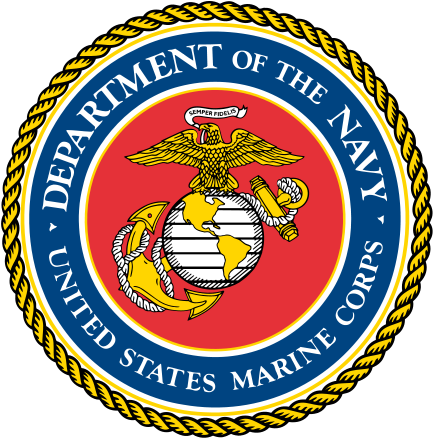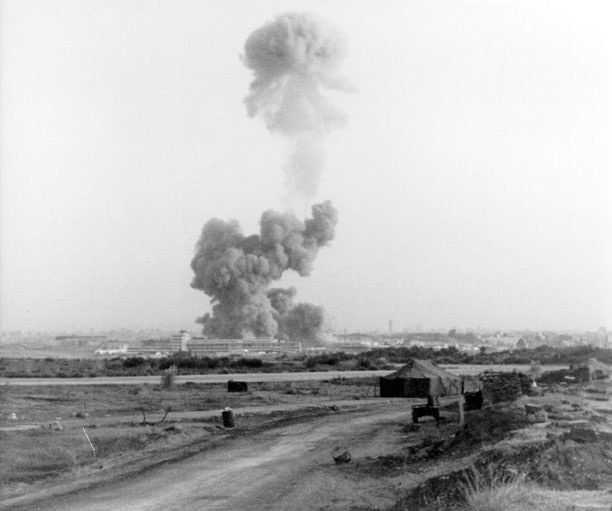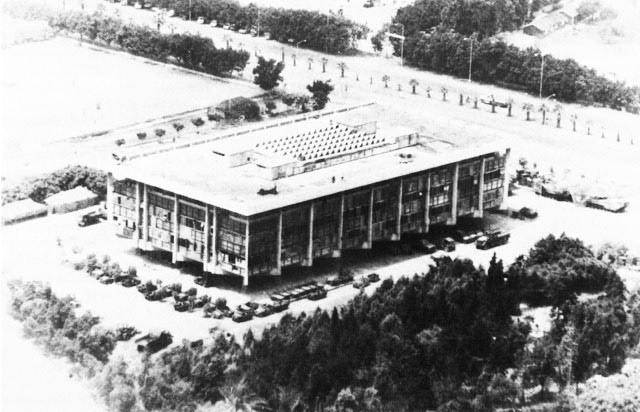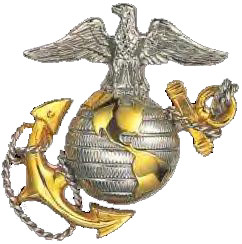USMC Barracks Bombing
HUNDREDS OF OUR FINEST WERE KILLED, NO
RETALIATION FROM THE U.S.
1983 BEIRUT BARRACKS BOMBING

U.S. MARINE CORP
The 1983 Beirut barracks bombing was a major incident on October 23, 1983, during the Lebanese Civil War. Two truck bombs struck buildings in Beirut housing U.S. and French members of the Multinational Force in Lebanon, killing hundreds of soldiers, the majority being U.S. Marines. The blasts led to the withdrawal of the international peacekeeping force from Lebanon, where they had been stationed since the Israeli 1982 invasion of Lebanon.
The bombing
On October 23 1983, around 6:20 am, a yellow Mercedes-Benz truck drove to Beirut International Airport, where the 1st Battalion 8th Marines, under the U.S. 2nd Marine Division of the United States Marine Corps, had set up its local headquarters. The truck had been substituted for a hijacked water delivery truck. The truck turned onto an access road leading to the Marines' compound and circled a parking lot. The driver then accelerated and crashed through a barbed wire fence around the parking lot, passed between two sentry posts, crashed through a gate and barreled into the lobby of the Marine headquarters. The Marine sentries at the gate were operating under their rules of engagement, which made it very difficult to respond quickly to the truck. By the time the two sentries had locked, loaded, and shouldered their weapons, the truck was already inside the building's entry way.
The suicide bomber detonated his explosives, which were equivalent to 12,000 pounds (about 5,400 kg) of TNT. The force of the explosion collapsed the four-story cinder-block building into rubble, crushing many inside.It is said to have been the largest non-nuclear blast ever (deliberately) detonated on the face of the earth. "The force of the explosion," "initially lifted the entire four-story structure, shearing the bases of the concrete support columns, each measuring fifteen feet in circumference and reinforced by numerous one and three quarter inch steel rods. The airborne building then fell in upon itself. A massive shock wave and ball of flaming gas was hurled in all directions."
About 20 seconds later, an identical attack occurred against the barracks of the French 3rd Company of the 6th French Parachute Infantry Regiment. Another suicide bomber drove his truck down a ramp into the building's underground parking garage and detonated his bomb, leveling the headquarters.

BEIRUT BOMBING

USMC BARRACKS LABANON
Death toll
Rescue efforts continued for days. While the rescuers were at times hindered by sniper fire, some survivors were pulled from the rubble and airlifted to the RAF hospital in Cyprus or to U.S. and German hospitals in West Germany
In the attack on the American barracks, the death toll was 241 American servicemen: 220 Marines, 18 Navy personnel and 3 Army soldiers. Sixty Americans were injured. In the attack on the French barracks, 58 paratroopers were killed and 15 injured. In addition, the elderly Lebanese custodian of the Marines' building was killed in the first blast. The wife and four children of a Lebanese janitor at the French building also were killed.
This was the deadliest single-day death toll for the United States Marine Corps since the Battle of Iwo Jima (2,500 in one day) of World War II and the deadliest single-day death toll for the United States military since the 243 killed on 31st January 1968 the first day of the Tet offensive in the Vietnam war. The attack remains the deadliest post-World War II attack on Americans overseas.
Response
President Ronald Reagan called the attack a "despicable act" and pledged to keep a military force in Lebanon. Secretary of Defense Caspar Weinberger said there would be no change in the U.S.'s Lebanon policy. On October 24 French President Francois Mitterrand visited the French bomb site. It was not an official visit, and he only stayed for a few hours, but he did declare: "We will stay." U.S. Vice President George Bush toured the Marine bombing site on October 26 and said the U.S. "would not be cowed by terrorists."
In retaliation for the attacks, France launched an air strike in the Beqaa Valley against Iranian Revolutionary Guard positions. President Reagan assembled his national security team and planned to target the Sheik Abdullah barracks in Baalbek, Lebanon, which housed Iranian Revolutionary Guards believed to be training Hezbollah fighters. But Defense Secretary Caspar Weinberger aborted the mission, reportedly because of his concerns that it would harm U.S. relations with other Arab nations.
Besides a few shellings, there was no serious retaliation for the Beirut bombing from the Americans.
The Marines were moved offshore where they could not be targeted. On February 7, 1984, President Reagan ordered the Marines to begin withdrawal from Lebanon. This was completed on February 26; the rest of the MNF was withdrawn by April.
Aftermath
It is uncertain as to who is responsible for the bombing although several radical Shiite militant groups claimed responsibility for the attacks, and one, the Free Islamic Revolutionary Movement, identified the two suicide bombers as Abu Mazen and Abu Sijaan.
Despite the fact that they were not officially an organization until February 1985, many (notably the U.S. government) believe that elements that would eventually become Hezbollah, a Lebanese Shia militant group backed by Iran and Syria, was responsible for this bombing as well as the bombing of the U.S. Embassy in Beirut in April. Hezbollah, Iran and Syria have denied any involvement.
Many in the U.S. government do not claim Hezbollah is responsible for the Marine barracks attack. For example in 2001 Caspar Weinberger stated: "But we still do not have the actual knowledge of who did the bombing of the Marine barracks at the Beirut Airport, and we certainly didn't then.
In May 2003, in a case brought by the families of the 241 servicemen who were killed, U.S. District Court Judge Royce C. Lamberth declared that the Islamic Republic of Iran was responsible for the 1983 attack.

OFFICER EMBLEM
THE TRAGEDY OF THIS BOMBING WILL LIVE FOREVER WITH EVERY MARINE AS THE U.S. DID NOTHING IN RETALIATION. WE LOST THIS ONE, WE LOST THE PUEBLO, WE LOST KOREA, WE LOST VIETNAM, WE ARE LOSING IRAQ.
THE MARINES WERE HUMILIATED OVER THIS BOMBING WHICH KILLED HUNDREDS OF OUR BEST MEN. DEFENSE SECRETARY CASPER WEINBERGER WAS RESPONSIBLE FOR OUR COWARDLY RESPONSE, IT MIGHT HURT OUR RELATIONS WITH OTHER ARAB NATIONS. HOW PATHETIC !
WEBSITE HISTORIAN and WIKIPEDI